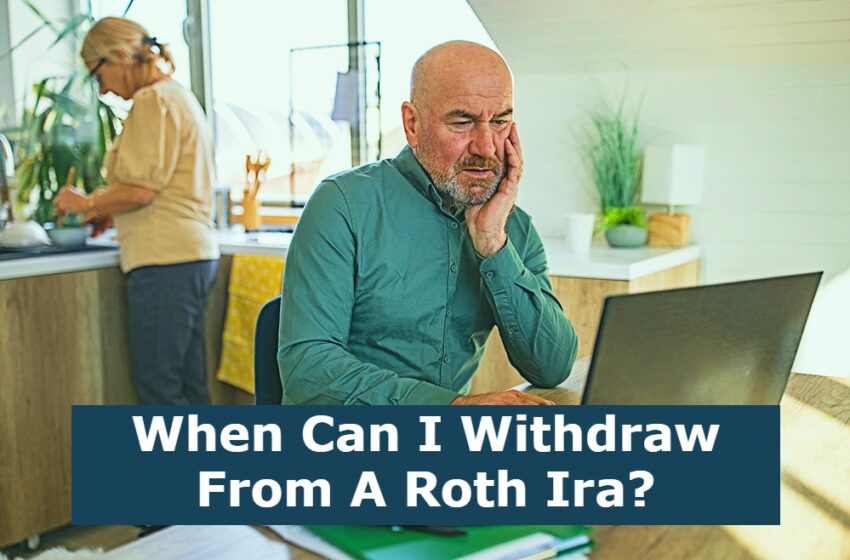
When Can I Withdraw From A Roth Ira?
If you have a Roth IRA and are thinking about taking money out of it, you should keep in mind some of the rules. For example, if you’re under 59 1/2 years old, you can’t withdraw from your IRA without having to wait five years. Also, there are certain medical expenses that you cannot withdraw from your IRA if you’re under 65, such as your annual medical costs, which can exceed 10% of your adjusted gross income.
Taxes and penalties
A Roth IRA provides a tax-free growth opportunity. But there are also taxes and penalties that you may have to pay if you withdraw money from the account before age 59.
You are required to wait five years after you first make a contribution to a Roth IRA before you can start withdrawing funds. The IRS has a number of exceptions to this rule, including a distribution for medical expenses and qualified education expenses.
There is an early withdrawal penalty of 10% on the amount converted. This is in addition to the tax on the earnings portion of the withdrawal.
If you are under 59 and a half, you can only take out up to $10,000 of your IRA. Any other amount you pull out is subject to an income tax.
First-time homebuyer withdrawals
First time homebuyer withdrawals from a Roth IRA can be an excellent way to fund your down payment. However, there are some specific rules you must follow in order to make sure you don’t get into any trouble.
The first time homebuyer exemption allows you to withdraw up to $10,000 from your IRA without incurring a penalty. If you’re a spouse, you can each take out another $10,000 tax-free.
In general, the IRS defines a first time homebuyer as someone who hasn’t owned a home within the last two years. This includes a principal residence or a home used as a primary residence. It also includes a family member, such as a parent or grandchild.
To qualify for the $10,000 exemption, you must meet certain requirements. You must have had a Roth IRA for at least five years.
Converted principal withdrawals
When converting traditional IRAs to Roth IRAs, you are required to wait five years before you can access the money you have contributed. This means that you can’t take the money out penalty-free before age 59 1/2. But this doesn’t mean that you have to wait for the rest of your life.
The five-year rule is a little different for each type of Roth IRA. It starts at the beginning of the tax year in which you make your conversion. However, it doesn’t apply to extra months of direct Roth contributions.
Each time you convert, you have to keep track of how much you have converted each year. This is important so you don’t pay more taxes on incremental dollars of converted money.
Medical expenses that exceed 10% of your AGI
If you have medical expenses that exceed 10% of your adjusted gross income (AGI), you may be able to withdraw from your Roth IRA without a penalty. You can only withdraw money for qualified medical expenses, and you must pay them within a year of the date you took the funds.
There are certain exceptions to the 10% early withdrawal penalty, though. Qualified medical expenses are not eligible for the penalty if you are taking them in your own personal IRA, and if you are taking them in a company’s plan.
For example, you can take money from your IRA to pay for health insurance premiums, or to buy a new car. But you cannot withdraw more than $10,000 from your IRA in any year, and you cannot use a combination of withdrawals to purchase a home.
If you’re under 59 1/2 and don’t meet the five-year test
If you’re under 59 1/2 and don’t meet the five-year test to withdraw from a Roth Ira, there are some things you should know. It’s important to understand the rules so you can make a smart decision.
The Roth IRA rule states that you must wait at least five years after your first contribution before you can withdraw funds. This is a fairly simple rule for those who are 35 or older, though if you’re younger, it might be a little tricky.
There are exceptions to the early withdrawal penalty. You can avoid it if you take a series of substantially equal distributions, pay certain unreimbursed medical expenses, and buy a home. However, it’s important to check with your financial advisor to determine whether or not you qualify for these exceptions.


